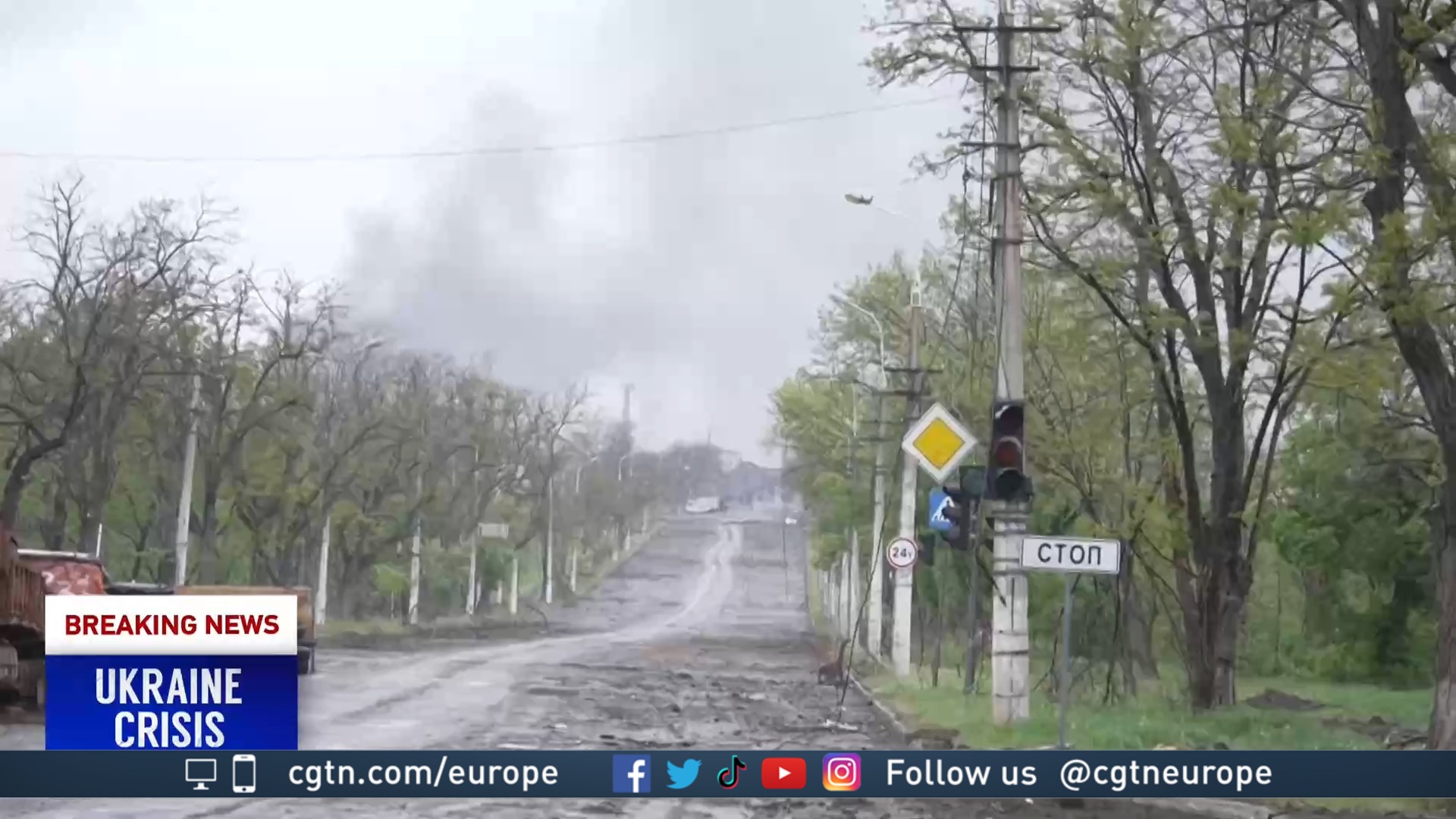
Kyiv has officially ceded Mariupol to Russia. /CGTN Europe
Kyiv has officially ceded Mariupol to Russia. /CGTN Europe
The name of the Ukrainian port city of Mariupol has become infamous since Russia launched its so-called 'special operation' in Ukraine in February.
Within weeks, heavy fighting reached the streets of Mariupol, an industrial hub of almost half a million people on the shores of the Sea of Azov.
Ever since the Ukraine conflict broke out in the east of the country in 2014, Kyiv authorities have invested heavily in the city's military infrastructure, fearing the conflict would eventually reach the city.
READ MORE
What is NATO and why is Russia worried?
Boxing away stress in Kyiv
What can Finland's military offer NATO?
02:27

The controversial ultra-nationalist Azov battalion, which later expanded into the regiment, has based itself in Mariupol since its creation. When the first clashes started in February, it was evident that Mariupol would be one of the conflict's epicenters.
Two months later, the fighting in the town's residential areas was all but finished, while the remaining Ukrainian forces retreated to the Azovstal steel works, which covered 11 square-kilometers of the city just by itself.
Arriving at the Azovstal plant just as it was about to fall, we were greeted by the sound of heavy fighting, a reminder that hundreds of Ukrainian fighters, many from the Azov regiment, were at that point, still mounting a defense of the city.

Mikhail Sergeevich, head of the Ordzhonikidzevsky District of Mariupol, had predicted the Ukrainian fighters could hold out for weeks. /CGTN Europe
Mikhail Sergeevich, head of the Ordzhonikidzevsky District of Mariupol, had predicted the Ukrainian fighters could hold out for weeks. /CGTN Europe
It had been like that for weeks, but the Russians could feel the end was near, according to Mikhail Sergeevich, appointed by the authorities of the self-proclaimed Donetsk People's Republic as head of the Ordzhonikidzevsky district of Mariupol.
"The clearing operation is ongoing in the Azovstal plant, to clear the remaining Nazis," he told CGTN Europe, referring to the Azov fighters, who have been characterized by Moscow as supporting neo-Nazi ideology, a claim refuted by the regiment.
"The city has been liberated, just Azovstal remains, and by all estimates, this might last for a week or a maximum of two weeks, I can't tell you exactly."
With Kyiv announcing the surrender of the soldiers holed up in the steel works on Tuesday morning, officially ceding the city to Russia on May 16, the prediction from the new leader of the Mariupol district was more prescient than he had imagined.
However, his interview came to an abrupt stop as the Azovstal shelling intensified and we were asked to move. We had been in one place for too long, and those escorting us suggested we leave as soon as possible because we were attracting attention.
On the way back to the city center, we passed scenes of carnage in the town's residential areas. Not a single house or apartment there has survived the street battles.
We came across a makeshift, shallow grave in front of one of the buildings. On a small piece of cardboard attached to a stick in the ground, a handwritten note read that the body of Aleksandr Ilyich, born in 1947, lay beneath, killed on March 19 this year.
For many, it has been impossible to give people a proper burial because of the fighting.

A makeshift grave in Mariupol bears a handwritten note reading that the body of Aleksandr Ilyich, born in 1947, lies beneath. /CGTN Europe
A makeshift grave in Mariupol bears a handwritten note reading that the body of Aleksandr Ilyich, born in 1947, lies beneath. /CGTN Europe
In a nearby humanitarian center we met Gleb, a local resident who is one of those helping the new authorities distribute humanitarian aid to thousands around the city. "We hoped there wouldn't be such a huge loss," he said, adding that resistance to the Russian incursion had helped increase fatalities.
"Since they hide in their homes and shoot from there, then the casualties are understandable. But the mood of the people here is different, some cry, some don't. Some hope, and some have some perspective."
The humanitarian center is located in what was once a huge supermarket. But not everyone can come here and get help, like 83-year-old Olevtina who we met in one of the semi-preserved buildings.
"I'm alone now. The neighbors feed me, good neighbors," Olevtina told us through tears.
"I don't have anyone here," Olevtina continued. "My granddaughter was wounded and they took her to Khabarovsk, and I was left alone. There is nobody here for me. Only those neighbors that are helping me."
Olevtina is one of thousands in Mariupol who needs help to renew what is left of her life. A long and difficult journey lies ahead for those prepared to stay in the city.

